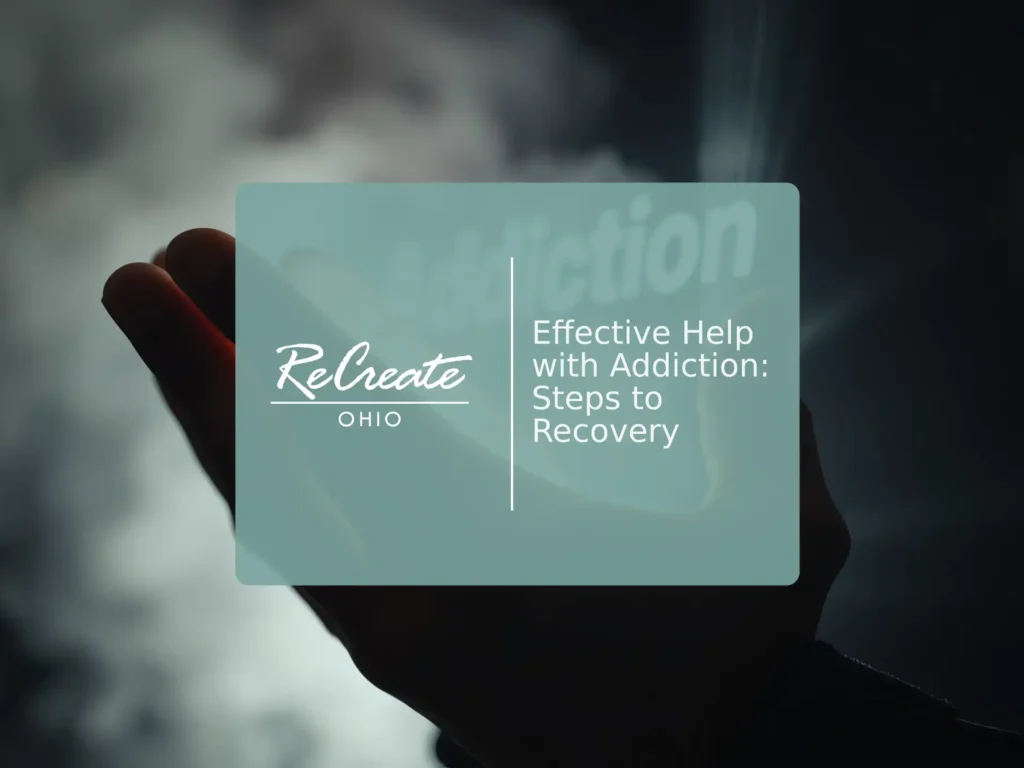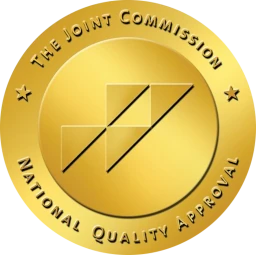Table of Contents
Inpatient Detox and Residential Treatment: Understanding Your Cigna Insurance Coverage in Ohio

Seeking appropriate treatment for substance use disorders often requires intensive levels of care, particularly during the critical early stages of recovery. For many individuals and families, understanding how Cigna insurance covers inpatient detoxification and residential treatment services is essential to accessing these vital treatment options without overwhelming financial burden.
The journey toward substance abuse treatment often begins with two intensive levels of care: medical detox and residential inpatient treatment. These services provide the structure, medical supervision, and therapeutic support necessary for the earliest and often most vulnerable stages of recovery. And yes, Cigna insurance typically does cover these vital services as part of their behavioral health services—but understanding the specifics of that coverage can make a significant difference in your addiction treatment experience and financial responsibility.
At Recreate Behavioral Health of Ohio, our team has developed extensive expertise in navigating Cigna insurance coverage for addiction treatment. As an in-network provider with Cigna, Recreate Ohio helps patients understand how their specific Cigna plans work for substance use disorder treatment, particularly for medical detox and residential inpatient treatment in Ohio. This knowledge allows our team to maximize benefits for patients while minimizing financial uncertainties during the treatment process.
Understanding Cigna Health Insurance Plans
Cigna health insurance plans offer a comprehensive range of benefits for individuals seeking treatment for substance use disorders. Understanding the specifics of your Cigna plan is crucial to determining the extent of your benefits. Cigna plans may cover services such as detoxification, inpatient rehabilitation, outpatient treatment, therapy, and support. The extent of coverage for these services depends on whether the provider is in-network or out-of-network.
In-network providers, like Recreate Behavioral Health of Ohio, have pre-negotiated rates with Cigna, which typically results in lower out-of-pocket costs for you. Out-of-network providers, on the other hand, may result in higher costs and more complex billing processes. Therefore, it’s essential to review your specific Cigna health insurance plan to understand the coverage details and make informed decisions about your treatment options.
Cigna’s Approach to Coverage for Intensive Addiction Services

Cigna, like most major insurance companies, has evolved significantly in how it approaches addiction treatment coverage. We’ve witnessed this evolution firsthand—from an era when insurance barely covered addiction services to today’s more comprehensive approach.
This shift has been driven largely by:
- Legislative changes including the Mental Health Parity and Addiction Equity Act
- Growing recognition of addiction as a chronic medical condition
- Research demonstrating the cost-effectiveness of proper treatment
- Increased advocacy from healthcare providers and patient groups
Today, Cigna generally approaches coverage for detox and residential treatment through a “medical necessity” framework. This means coverage is based on clinical need rather than arbitrary limits—a significant improvement from past practices. (Though I should note that “medical necessity” determinations can sometimes become a point of negotiation between providers and insurers.)
Understanding Cigna Coverage for Inpatient Detoxification

Detoxification—the process of safely managing withdrawal symptoms when someone stops using substances—is often the first step in addiction treatment. For many substances, this process requires medical supervision to manage potentially dangerous symptoms and complications. Cigna covers both inpatient and outpatient services, providing a comprehensive range of care options based on the specific health plan.
What Cigna Typically Covers for Detox Services
In our experience working with Cigna plans in Ohio, coverage for medically necessary inpatient detox typically includes:
- 24/7 medical monitoring and supervision
- Medication management to alleviate withdrawal symptoms
- Laboratory testing and monitoring
- Nursing care and observation
- Physician services and evaluations
- Basic psychological support during the detox process
The length of covered detox varies based on the substance involved and individual factors. Typically, I see Cigna cover:
- 3-5 days for alcohol detoxification
- 5-7 days for opioid detoxification
- 3-5 days for benzodiazepine detoxification (though this can be longer for long-term users)
- 1-3 days for stimulant detoxification
These timeframes aren’t rigid—they can be extended based on medical complications or co-occurring conditions. I recently worked with a patient detoxifying from alcohol who developed significant electrolyte imbalances; Cigna extended his detox coverage from the initially authorized 4 days to 7 days based on the medical necessity documentation we provided.
Recreate Ohio’s In-Network Advantage for Cigna Members Needing Detox
As an in-network provider with Cigna, Recreate Behavioral Health of Ohio offers several advantages for members needing detoxification services:
- Reduced out-of-pocket costs through contracted rates
- Streamlined authorization process with established protocols
- Direct billing to simplify the financial process
- Coordinated care planning with Cigna case managers
One aspect of our approach that I’m particularly proud of is our comprehensive initial assessment process. This thorough evaluation helps us document all factors contributing to medical necessity, which often results in more appropriate authorization lengths and fewer insurance-related disruptions to treatment.
Cigna Coverage for Residential Substance Abuse Treatment

Following detoxification, many individuals benefit from the structured environment and intensive therapeutic support of residential treatment. This level of care provides 24-hour support in a non-hospital setting, combining therapy, skill-building, and recovery planning. Residential treatment also integrates comprehensive mental health services to address co-occurring disorders and support overall well-being.
What Cigna Typically Covers in Residential Treatment
Cigna plans typically cover the following components of residential treatment:
- Daily individual and/or group therapy sessions
- Addiction education and relapse prevention planning
- Psychiatric services and medication management
- Case management and discharge planning
- Basic medical services related to recovery
- Room and board during the treatment stay
The residential treatment coverage duration through Cigna varies significantly based on:
- Specific plan details (employer-sponsored plans often have more comprehensive coverage)
- Individual clinical needs and response to treatment
- Presence of co-occurring mental health conditions
- History of previous treatment attempts
In our experience, initial authorizations typically range from 14-28 days, with the possibility of extensions based on documented progress and continuing needs.
Real-World Example: Cigna Coverage in Action

I recently worked with a 42-year-old patient with an opioid use disorder who had a Cigna PPO plan through his employer. His insurance company provided coverage as follows:
- Detoxification: 7 days covered at 90% after his $1,000 deductible
- Residential Treatment: Initially authorized for 14 days, then extended for an additional 10 days based on clinical documentation
- Total Patient Responsibility: Approximately $2,800 for a 31-day treatment episode (detox + residential)
Without insurance, this same treatment would have cost over $30,000. The in-network relationship between Recreate Ohio and Cigna made treatment financially accessible for this patient and his family.
Navigating Cigna’s Authorization Requirements
One aspect of insurance coverage that often creates confusion is the authorization process. For both detox and residential services, Cigna requires pre-authorization—a process where the insurer reviews clinical information and approves coverage before treatment begins.
At Recreate Ohio, we manage this process for our patients, but understanding how it works can help reduce anxiety about coverage:
- Initial Assessment: We conduct a comprehensive evaluation to document clinical need
- Utilization Review: Our team submits clinical documentation to Cigna
- Initial Authorization: Cigna reviews and approves an initial treatment period
- Concurrent Review: Throughout treatment, we provide updates on progress
- Extension Requests: When needed, we submit documentation to extend authorization
This process requires clinical expertise and attention to detail. we’ve found that thorough documentation of risk factors—such as previous withdrawal complications, co-occurring medical conditions, or failed outpatient attempts—significantly improves authorization outcomes.
The Recreate Ohio Difference for Cigna Members

As an in-network provider with Cigna, Recreate Behavioral Health of Ohio offers distinct advantages for members needing detox and residential services:
- Specialized expertise in detoxification for multiple substances
- Integrated treatment for co-occurring mental health conditions
- Comprehensive assessment process that supports authorization
- Dedicated insurance team to manage the coverage process
- Established relationships with Cigna case managers
- Seamless transitions between levels of care
we’ve witnessed the significance of these advantages firsthand. One patient I worked with had attempted treatment at an out-of-network facility, where communication challenges with Cigna led to unexpected costs and a prematurely terminated treatment stay. When he came to Recreate Ohio, our coordinated approach with Cigna resulted in appropriate coverage throughout his recovery journey.
Taking the Next Step with Confidence
Making the decision to seek treatment for addiction is courageous. Understanding your insurance coverage shouldn’t add unnecessary stress to this process.
If you or someone you love is struggling with addiction and has Cigna insurance, I encourage you to contact Recreate Behavioral Health of Ohio for a confidential insurance verification. Our team will:
- Analyze your specific Cigna plan details
- Explain your coverage for detox and residential treatment
- Provide an estimate of any out-of-pocket costs
- Answer questions about the treatment process
- Help you take the next step when you’re ready
In our years of working with individuals seeking recovery, we’ve found that clarity about insurance coverage often removes a significant barrier to taking that first step. With Recreate Ohio’s in-network status with Cigna and our expertise in navigating insurance for detox and residential services, you can focus on what matters most—healing and recovery.
Have you been hesitating to seek help because of insurance concerns? I invite youRetryClaude hit the max length for a message and has paused its response. You can write Continue to keep the chat going.
Frequently Asked Questions About Cigna Coverage for Detox and Residential Treatment
How does Cigna determine if detox or residential treatment is “medically necessary”?
Cigna uses a set of clinical criteria to determine medical necessity for addiction treatment services. These criteria typically include factors like withdrawal risk, failed attempts at lower levels of care, co-occurring medical or psychiatric conditions, and recovery environment safety. At Recreate Ohio, we’re familiar with these criteria and ensure our assessments thoroughly document all relevant factors. we’ve found that this approach significantly increases initial authorization success rates. For example, clearly documenting a patient’s previous seizure during alcohol withdrawal almost always results in approval for inpatient rather than outpatient detox.
Will Cigna cover detox but deny residential treatment?
This can happen, particularly if the clinical documentation doesn’t clearly establish the need for continued 24-hour care after detox completion. Cigna sometimes takes the position that a patient should try a less intensive level of care (like partial hospitalization or intensive outpatient) between detox and residential treatment. At Recreate Ohio, we carefully assess and document factors that necessitate residential care—such as unstable living environments, co-occurring disorders, or previous relapse after lower levels of care—to minimize the chances of this scenario. When it does occur, we have an established appeals process that has been successful in many cases. An intensive outpatient program (IOP) is another alternative treatment option that Cigna might suggest, offering structured therapy sessions a few evenings a week, allowing patients to maintain their daily responsibilities.
Does Cigna cover the full duration of recommended treatment?
Cigna typically authorizes treatment in increments rather than for the full recommended duration upfront. Initial authorizations might be for 3-5 days of detox and 7-14 days of residential treatment, with extensions based on ongoing clinical need. This incremental approach means our clinical team is regularly communicating with Cigna’s case managers to secure additional covered days when needed. we’ve observed that demonstrating measurable progress while also clearly documenting continuing needs is the most effective strategy for extending authorizations to cover the full recommended treatment duration.
What happens if I need to extend my stay beyond what Cigna initially authorizes?
If you need to extend your treatment stay, Recreate Ohio will submit a concurrent review request to Cigna with updated clinical information. This process includes documentation of your progress, current symptoms, ongoing risk factors, and treatment goals that require additional time to address. In our experience, Cigna is generally reasonable about extending authorizations when properly documented clinical needs exist. However, it’s important to understand that at some point, Cigna may determine that a less intensive level of care is appropriate. When this happens, we work with you to develop a transition plan that maintains appropriate support while respecting insurance limitations.
Is medication assisted treatment for withdrawal management covered by Cigna?
Yes, medications used during the detoxification process are typically covered as part of Cigna’s inpatient detox benefits. This includes medications like benzodiazepines for alcohol withdrawal, buprenorphine for opioid withdrawal, and other medications to manage specific withdrawal symptoms. The coverage is usually included in the facility’s daily rate rather than billed separately. For medications that will continue after discharge, like naltrexone (Vivitrol) or buprenorphine (Suboxone), coverage transitions to your Cigna pharmacy benefit. Our case management team coordinates with your insurance to ensure continuity of these medications when they’re part of your ongoing recovery plan.
Does Cigna cover treatment for co-occurring mental health conditions during detox and residential treatment?
Yes, Cigna typically covers treatment for co-occurring mental health conditions as part of addiction treatment when properly documented. This integrated approach is particularly important since about 50% of individuals with substance use disorders also have mental health conditions. At Recreate Ohio, our program includes psychiatric evaluation, medication management, and therapy for co-occurring conditions like depression, anxiety, PTSD, and bipolar disorder. We’ve found that clearly documenting how the mental health condition interacts with the substance use disorder—either as a contributing factor or complicating recovery—strengthens the case for comprehensive coverage. Additionally, mental health treatment is crucial in providing comprehensive care that addresses both mental health conditions and substance use disorders.
How does Recreate Ohio help maximize my Cigna benefits for detox and residential treatment?
Recreate Ohio has several strategies for maximizing your Cigna benefits. First, our insurance verification team conducts a thorough analysis of your specific plan, identifying all applicable benefits and requirements. Second, our clinical documentation emphasizes the factors that align with Cigna’s medical necessity criteria. Third, we maintain regular communication with Cigna case managers throughout treatment, providing timely updates that support continued authorization. Fourth, we have an established appeals process for addressing any coverage denials, including expedited appeals when necessary. Finally, our billing team ensures accurate coding and submission of claims to minimize payment delays or denials. This comprehensive approach typically results in maximum benefit utilization with minimal out-of-pocket costs for our patients.










